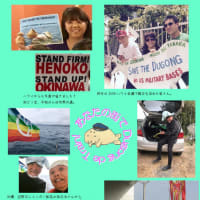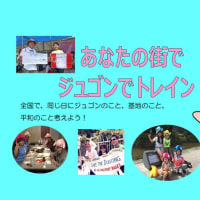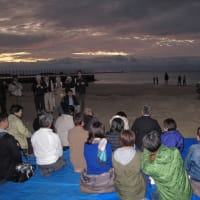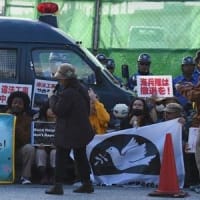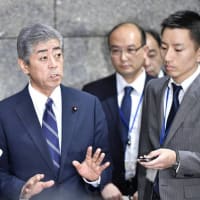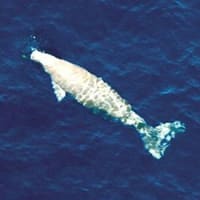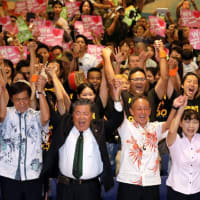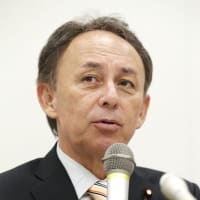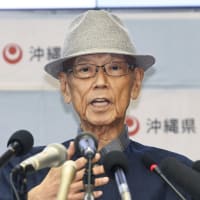SDCC members have attended 6th World Conservation Congress (WCC) of the International Union for Conservation of Nature (IUCN). We published the report collecttion of the WCC.
Next report is about IUCN Resolution.
Stop the Reclamation of Henoko & Oura Bay, Okinawa, Japan!
Call for Implementation of IUCN Resolution to Strengthen Provisions on Invasive Alien Species
At the 6th World Conservation Congress (WCC) of the International Union for Conservation of Nature (IUCN), the motion 17: Strengthening pathway management of alien species in island ecosystems, made by 6 Japanese environmental organizations (Note 1), was adopted on August 31 (Japan time). The vote was 80 ayes, 2 noes, and 74 abstentions among the government-related entities, and 459 ayes, 24 noes, and 204 abstentions among the NGO-related entities. The motion was adopted by a majority in both cases (Note 2). The Japanese and U.S. Governments abstained from voting. This is the 4th recommendation and resolution, following those made in 2000, 2004, and 2008. The governor of Okinawa Takeshi Onaga, commented: “The resolution is highly favorable” and “ I would like the governments to take the repeated recommendations seriously and to abandon the plan to reclaim the beautiful sea of Henoko.”
Introduction of Invasive alien species is a serious threat to biodiversity. Aichi Biodiversity Target 9 was decided in 2010 at the10th Conference of the Parties to the Convention on Biological Diversity, hosted by Japan. It states that: “By 2020, prioritized invasive alien species are controlled or eradicated, and measures are in place to manage pathways to prevent their introduction and establishment.” In 2012, it was resolved at the 5th IUCN WCC, held in Jeju, Korea. The government of Japan proposed and decided Aichi Target. On the other hand, the same government is planning to transfer 17 million cubic meters of soil and rock from mainland Japan and two islands, Amamioshima and Tokunoshima, to the planned construction site of the United States Marine Corp Facility at Henoko. How can it be allowed?
The Ministry of the Environment acknowledges that the Argentine ant, one of the invasive alien species, is widespread in Hiroshima and Setouchi, planned sites of landfill materials’ extraction. It can affect the crops, such as pineapples and sugar canes. Okinawa Defense Bureau of the Ministry of Defense commented irresponsibly: “As for the measures against alien species, we leave it all to contractors”.
The resolution specifies the concrete measures such as follows:
a. requests the IUCN to strengthen capacity in early detection and monitoring of invasive alien species;
b. urges the Government of Japan to develop methods for early detection of alien species in landfill materials prior to their transfer to Henoko;
c. Invites the Government of the United States to minimize the impact of alien species establishing themselves in Okinawa, in collaboration with the Government of Japan.
Dr. Mariko Abe, the Nature Conservation Society of Japan, explains: ”This resolution is not only about the landfill materials. It is to prevent all kinds of alien species.”
The Government of Japan is contrary to the world opinion and commented: “The resolution of the IUCN is just an opinion of scientists”, and “We are not bound by the resolution”. At the IUCN World Conservation Congress, we have collected signatures of 1513 people from 82 countries to call for implementation of motion 17, which demands strengthening the measures against alien species, and the recommendations and resolution adopted 3 times previously .
Our planned activities include holding brief sessions, negotiations with the Prefecture of Okinawa and the Government of Japan, and submission of the signatures. We will prove that the reclamation of Henoko and Oura Bay is scientifically against Aichi Target.
Note 1: 6 organizations are: the Nature Conservation Society of Japan, Save the Dugong Campaign Center, WWF Japan, Wild Bird Society of Japan, Ramsar Network Japan, and Japan Wildlife Conservation Society.
Note 2: A motion is adopted when the vote achieves a majority in each of the government-related entities and the NGO-related entities. Abstentions are not counted as the votes cast.

Dr. Mariko Abe
Next report is about IUCN Resolution.
Stop the Reclamation of Henoko & Oura Bay, Okinawa, Japan!
Call for Implementation of IUCN Resolution to Strengthen Provisions on Invasive Alien Species
At the 6th World Conservation Congress (WCC) of the International Union for Conservation of Nature (IUCN), the motion 17: Strengthening pathway management of alien species in island ecosystems, made by 6 Japanese environmental organizations (Note 1), was adopted on August 31 (Japan time). The vote was 80 ayes, 2 noes, and 74 abstentions among the government-related entities, and 459 ayes, 24 noes, and 204 abstentions among the NGO-related entities. The motion was adopted by a majority in both cases (Note 2). The Japanese and U.S. Governments abstained from voting. This is the 4th recommendation and resolution, following those made in 2000, 2004, and 2008. The governor of Okinawa Takeshi Onaga, commented: “The resolution is highly favorable” and “ I would like the governments to take the repeated recommendations seriously and to abandon the plan to reclaim the beautiful sea of Henoko.”
Introduction of Invasive alien species is a serious threat to biodiversity. Aichi Biodiversity Target 9 was decided in 2010 at the10th Conference of the Parties to the Convention on Biological Diversity, hosted by Japan. It states that: “By 2020, prioritized invasive alien species are controlled or eradicated, and measures are in place to manage pathways to prevent their introduction and establishment.” In 2012, it was resolved at the 5th IUCN WCC, held in Jeju, Korea. The government of Japan proposed and decided Aichi Target. On the other hand, the same government is planning to transfer 17 million cubic meters of soil and rock from mainland Japan and two islands, Amamioshima and Tokunoshima, to the planned construction site of the United States Marine Corp Facility at Henoko. How can it be allowed?
The Ministry of the Environment acknowledges that the Argentine ant, one of the invasive alien species, is widespread in Hiroshima and Setouchi, planned sites of landfill materials’ extraction. It can affect the crops, such as pineapples and sugar canes. Okinawa Defense Bureau of the Ministry of Defense commented irresponsibly: “As for the measures against alien species, we leave it all to contractors”.
The resolution specifies the concrete measures such as follows:
a. requests the IUCN to strengthen capacity in early detection and monitoring of invasive alien species;
b. urges the Government of Japan to develop methods for early detection of alien species in landfill materials prior to their transfer to Henoko;
c. Invites the Government of the United States to minimize the impact of alien species establishing themselves in Okinawa, in collaboration with the Government of Japan.
Dr. Mariko Abe, the Nature Conservation Society of Japan, explains: ”This resolution is not only about the landfill materials. It is to prevent all kinds of alien species.”
The Government of Japan is contrary to the world opinion and commented: “The resolution of the IUCN is just an opinion of scientists”, and “We are not bound by the resolution”. At the IUCN World Conservation Congress, we have collected signatures of 1513 people from 82 countries to call for implementation of motion 17, which demands strengthening the measures against alien species, and the recommendations and resolution adopted 3 times previously .
Our planned activities include holding brief sessions, negotiations with the Prefecture of Okinawa and the Government of Japan, and submission of the signatures. We will prove that the reclamation of Henoko and Oura Bay is scientifically against Aichi Target.
Note 1: 6 organizations are: the Nature Conservation Society of Japan, Save the Dugong Campaign Center, WWF Japan, Wild Bird Society of Japan, Ramsar Network Japan, and Japan Wildlife Conservation Society.
Note 2: A motion is adopted when the vote achieves a majority in each of the government-related entities and the NGO-related entities. Abstentions are not counted as the votes cast.

Dr. Mariko Abe










